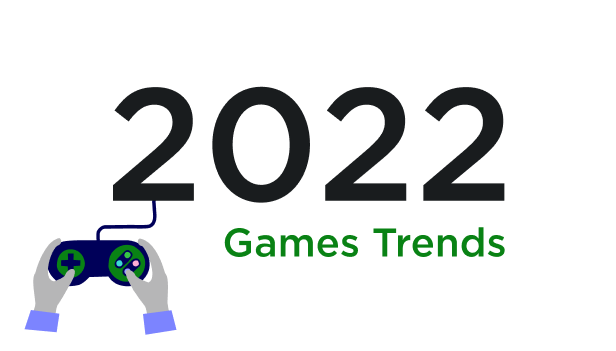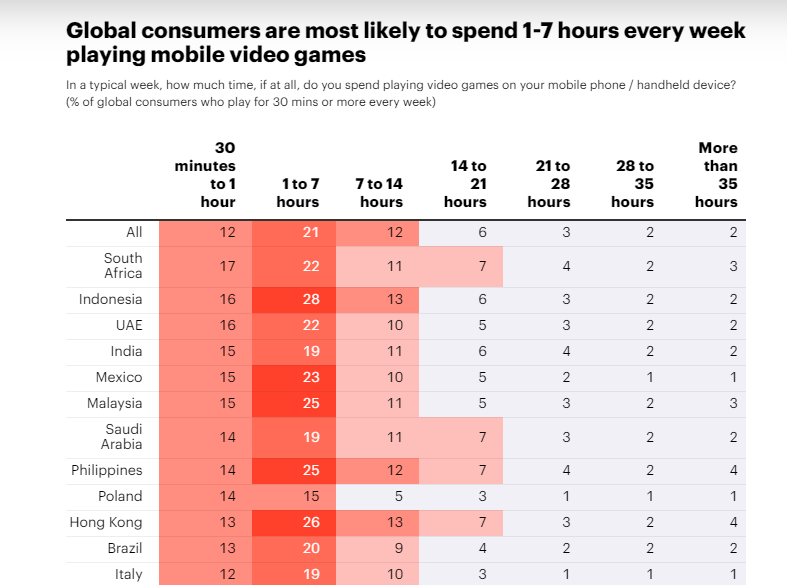Newzoo’s 2022 Global Games Market Report
- Games Market’s overall growth toward 2025: Nearly 3.2 billion people will play games in 2022, spending a combined total of $196.8 billion. And our forecasts show that the market will continue to grow in the following years.
- A breakdown of 2022 global game revenues per segment: the primary driver of the global market growth is mobile, which will generate revenues of $103.5 billion this year.
- The games market per region: regions like Latin America, Asia-Pacific, the Middle East, and Africa—all filled with many exciting growth markets—will drive much of this player growth in 2022 and the years beyond.
- Gaming Ecosystem: For the very first time, the report features not only the market and player numbers, trends, analysis, and insights we’re known for, but also market sizing data per ecosystem for the first time, including PlayStation, Xbox, Nintendo, Epic Games Store, Apple App Store, and Android App Stores.
- Special deep dives on games viewership, cloud gaming, the metaverse, Web3, and NFTs.
YouGov Global Gaming Consumer
According to the latest data from YouGov Global Profiles, one in four global consumers (25%) is playing at least seven hours of video games on their mobile or handheld device each week. While most people play less – a third say they play fewer than seven hours – a sizeable proportion (and more in some markets) are dedicating the equivalent of a working day to mobile gaming every week.
Data reveals that consumers in Asian markets are likely to spend more time playing every week. Consumers in Taiwan (6%), Hong Kong (4%), and the Philippines (4%) are the most likely of all to say they spend more than 35 hours a week playing video games.
The public in Indonesia, the Philippines, Hong Kong, Taiwan, and Spain are likelier to spend 7-14 hours a week gaming on their handheld devices but it’s in China where people are most likely to be found crouched over a game. Nearly one in five Chinese play 7-14 hours (18%), with a further ten percent playing 14-21 hours each week. Overall, nearly four in ten Chinese consumers (39%) are playing in excess of seven hours each week. A 2019 law limits the number of times children can play video games but, as the data shows, no such limits apply to adults.
Most of the markets polled register at least one in ten consumers who spend 30 minutes up to 1 hour every week on video games. South Africa registers 17% of consumers who say they spend 30 minutes to one hour in an average week, the highest in all markets. On the other hand, Germany and Great Britain poll only around one in 20 consumers (7% and 6% respectively), the least in all markets. In both countries, mobile and handheld gaming is currently taking up relatively less time for consumers compared to the other markets in our poll.
Around one in 20 Brits say they play for seven to 14 hours every week (5%), while 13% say they play for one to seven hours, the least of all markets in both sections. Like Brits, survey data indicates that consumers in Germany are also less likely to spend more than 30 minutes every week playing video games. The country registers 14% of consumers who spend one to seven hours every week playing video games.
Consumers in Canada and US have a similar affinity toward mobile/handheld video games. Fewer than one in ten consumers in both countries spend 30 minutes to one hour (9% each) and seven to 14 hours (8% Canada and 9% US) every week.
Source: Newzoo’s 2022 Global Games







